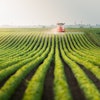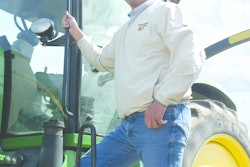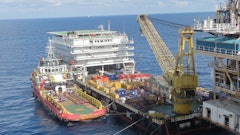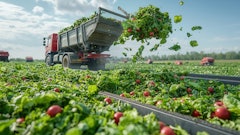
If there’s one thing I’ve learned from the best supply chain planners over the years, it’s ‘take the long view.’ In other words, think about the future effects of what you’re doing and why, don’t become over consumed with the present.
It’s for this reason that Food Logistics has broadened its editorial coverage to address issues throughout the global food supply chain. Ideally, the goal is to illustrate the interconnectedness of it all.
This issue is a prime example. Our cover story on Portwood Farms highlights some of the tough challenges facing growers in California’s San Joaquin Valley.
Water shortages are at the top of the list. The persistent drought is driving small, family-owned farmers out of business, field laborers and local food haulers are without work, and the already fragile economies of farming communities scattered throughout the Valley are hurting even more.
Of course, water shortages, climate change, more people on the planet, dwindling availability of arable land and so one are global concerns, not just California’s.
The silver lining (and there usually is one), is that very often answers and innovations to seemingly insurmountable problems are born from threats and adversity. Many creative and intelligent minds are working on solutions.
In previous issues, we’ve covered topics like entomophagy (eating insects for food) and how it could potentially become a viable and even desirable source of protein for the developed world. It’s not that far fetched. Check out Chapul Bars, they’re high-protein bars from cricket flour and they come in three flavors: dark chocolate and coffee, peanut butter and chocolate, and a Thai coconut ginger lime. I’m seeing some potential here!
Equally important, we’ve devoted a lot of space to sustainability, from energy and fuel efficiency, to warehouse and cold storage design, to reducing food waste, to the latest in transportation and logistics that continues to move more food further distances faster and safer.
Admittedly, there are brick walls ahead—social, political, and the zero sum argument between environmentalists and industry.
Yes, I do believe environmentalists and industry have become polarized and it’s unfortunate, especially when it comes to agriculture. Most farmers understand and appreciate that natural resources need to be protected in order to sustain food production today and for tomorrow’s generations. Likewise, most environmentalists agree that science and technology play an essential role in 21st century agriculture.
Ultimately, we’re all faced with the pressing issue of how to feed 9 billion people by 2050.
It’s for these reasons that Food Logistics will continue taking the long view.
Enjoy the read.


















